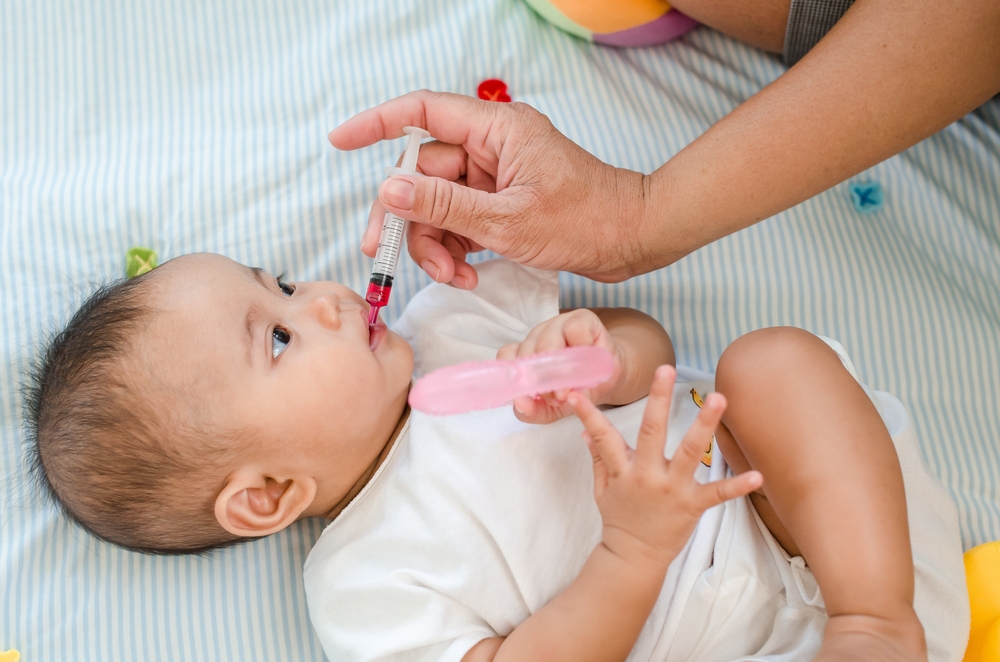
Pinch your nose? Of course not
Pinch the nose and feed the medicine, the child can only breathe through the oral cavity, which is easy to cause choking cough, serious lung infection and even suffocation death.
In addition, fragile nasal mucosa and blood vessels may be pinched and damaged by rough parents. During the pinching process, nasal secretions may also enter the middle ear through the eustachian tube, causing otitis media.
This kind of rough technique will also make children hate taking medicine more and more, which will do harm but not good.
With juice, milk and breast milk? Better not
Some parents use gentle methods, such as grinding drugs and putting them into fruit juice or milk, which looks good, but it is not very wise.
- Juice: Juice, Especially the freshly squeezed ones, It is rich in elements, It may have certain effects on drugs. For example, fruit juice containing vitamin C is reducible, Fruit and vegetable juices containing calcium and iron may combine with drug ingredients to form another substance, Even some drugs are inherently unstable in liquids, Mixed with fruit juice may affect the efficacy of the drug. Milk: It is also not very friendly to some antibiotics, antidiarrheal drugs and iron drugs. For example, milk will reduce the activity of some antibiotics. Affect the efficacy of antidiarrheal drugs, making iron precipitate. Breast milk: may combine with drugs to form another substance, affecting the efficacy. What does more harm than good is that children are originally full of favorable impression on breast milk. Once you mix drugs into breast milk, some children with more sensitive taste will find that breast milk has peculiar smell, spit it out directly and may resist breast milk.
Wrapped in food? Not recommended
Some parents have invented a food wrapping method, grinding tablets, breaking capsules and sprinkling them into food to coax their children to eat. In fact, there are many hidden dangers, because there may be some ingredients in food that will interact with drugs or affect drug metabolism, especially three types of drugs that cannot do so:
- One is a sustained-release preparation that emphasizes [cannot be broken], mainly some sustained-release tablets, enteric-coated capsules and enteric-coated tablets. Once broken and ground, the drug will be released in large quantities in a short period of time, increasing the toxic reaction of the drug, which will not only affect the drug effect, but also have risks. The other is to emphasize [taking on an empty stomach] drugs, especially digestive system drugs, such as anthelmintic drugs, antidiarrheal drugs, etc., mixed with food will also affect the drug effect; Some capsule shells are used to cover up the irritation or unpleasant smell of drugs and are generally not suitable for breaking.
Honey water with companion? Not recommended
If it is a child under one year old, absolutely not.
Honey is often contaminated by botulinum, and they can still survive at 100 ℃, which is a great threat to babies under one year old, because the normal flora in their intestinal tract cannot inhibit botulinum from producing toxins.
Moreover, honey contains a variety of trace elements and digestive enzymes. Babies over one year old can consider drinking a little honey water after drinking the medicine. However, attention should be paid to controlling the amount of honey, and a little sweetness is enough. The baby’s taste system has not yet been established and perfected. Tasting things too sweet too early is not a good thing for the child’s taste system.
